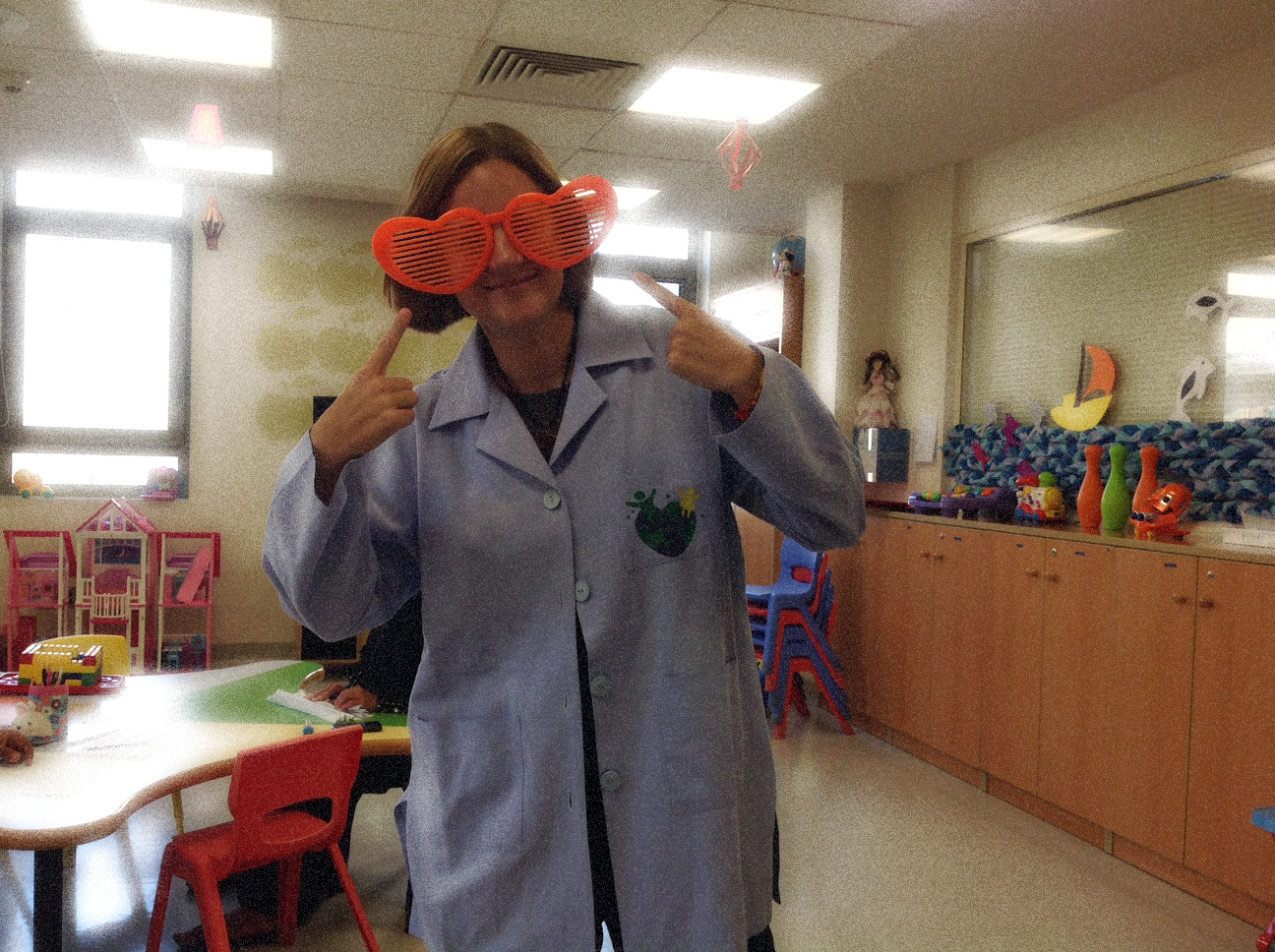Today at St. Jude’s in Beirut when I entered the playroom, I noticed a boy I hadn’t seen before playing on the computer. Though he was in a wheelchair with his back turned towards the door, I could tell his leg was extended in front of him in a long green cast. Next to him, his father was playing a video game on another computer. After I introduced myself, his father and I got to talking. Of course, one of my first question (in Arabic) was to ask where they are from, since families at St. Jude’s come from all over Lebanon.
“Syria,” he said. “Where are you from?”
“America,” I said.
There was no need to mention the elephant in the room, because in a cancer ward, the subject on everyone’s mind tends to be survival–in the face of extreme suffering, politics often seems like a luxury.
When I asked the names of his other children–who are still in Syria–he responded with names I had never heard before–and I had trouble repeating them. To me, they sounded Persian.
“No, they are Kurdish names,” he replied. No wonder his accent in Arabic had been so hard for me to place.
As his son, whose cancer had caused his leg to break on its own, played on the computer, we talked in Arabic about politics in Syria and the Kurds–a subject I knew little about, since it’s not being covered much in the news. As he explained to me how he had driven through a war zone to bring his son to the hospital for treatment in Beirut, I couldn’t imagine how he was staying sane with all of his compounded stress. Between the war, his son’s illness, relocating to another city for chemo, and contending with Beirut’s high cost of living, he seemed like he was barely holding it together–which is probably why he was grateful to talk.
“How do you say ‘how are you’ in Kurdish?” I asked. It took several tries for me to imitate the smooth sounds he patiently kept repeating–and my attempts at speaking baby Kurdish made him chuckle.
Before I knew it, I was getting intensive introductory Kurdish lessons in the playroom. I had a good reason for wanting to learn a few phases, beyond just being a linguist. My favorite phrase was the expression used to say “I’m very good”–Gilgy bosh (at least, that’s how it sounded–not sure how it’s spelled). When I had memorized a few phrases, after much repetition, I was finally able to walk over to his son, and ask him in Kurdish how he was doing–which is the reason why I had wanted to learn a little Kurdish.
“How are you?” I said in Kurdish–triggering the son’s first smile of the afternoon.
“Gilgy bash,” he said, giggling and shaking his head at this strange foreigner–trying her best to speak in his native tongue, in hopes of eliciting a sweet and spontaneous smile…
